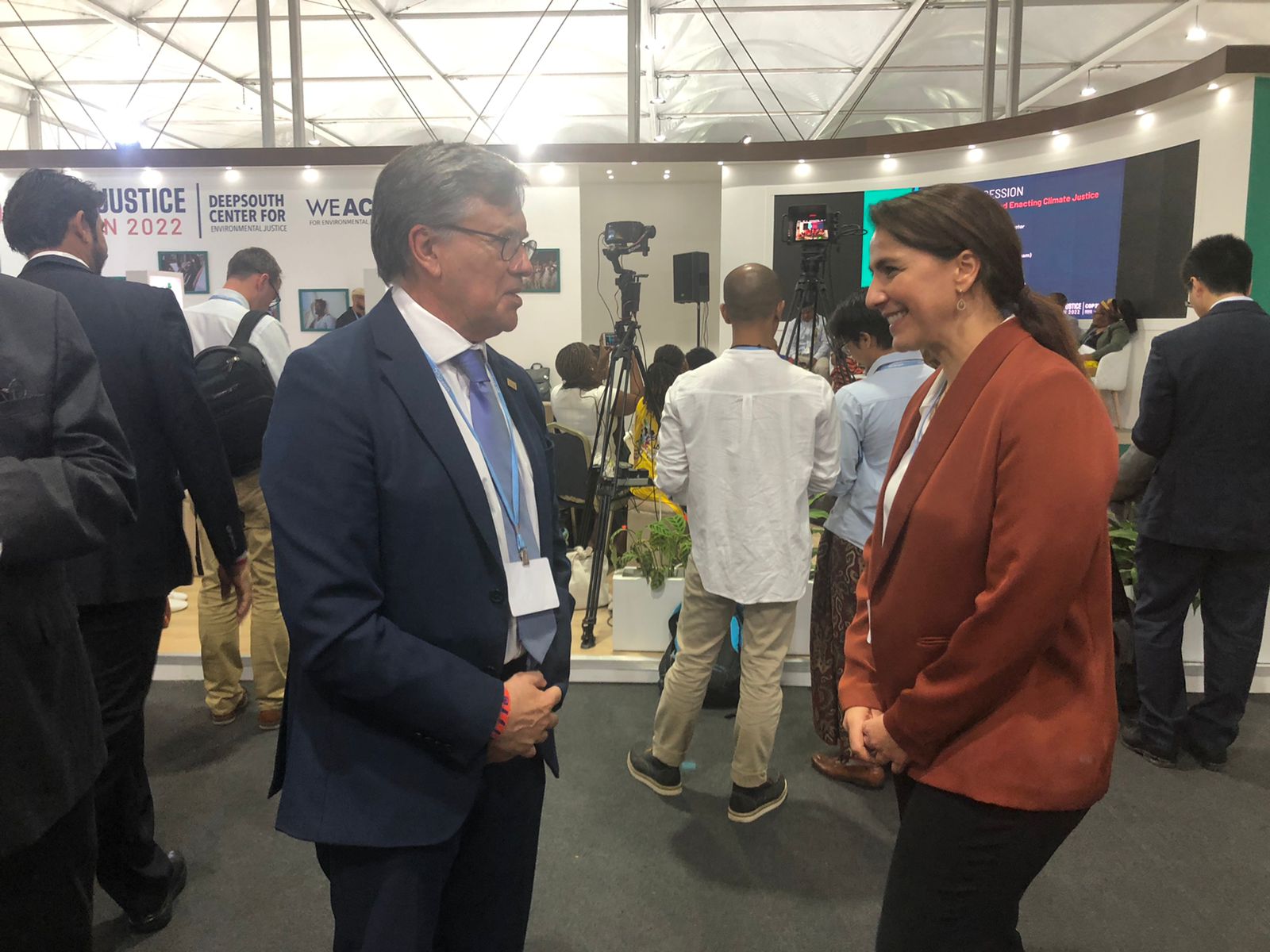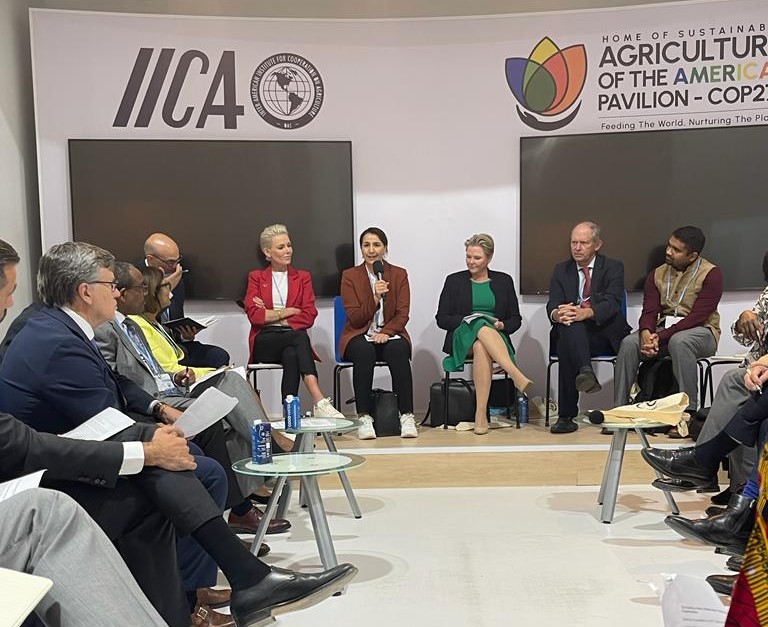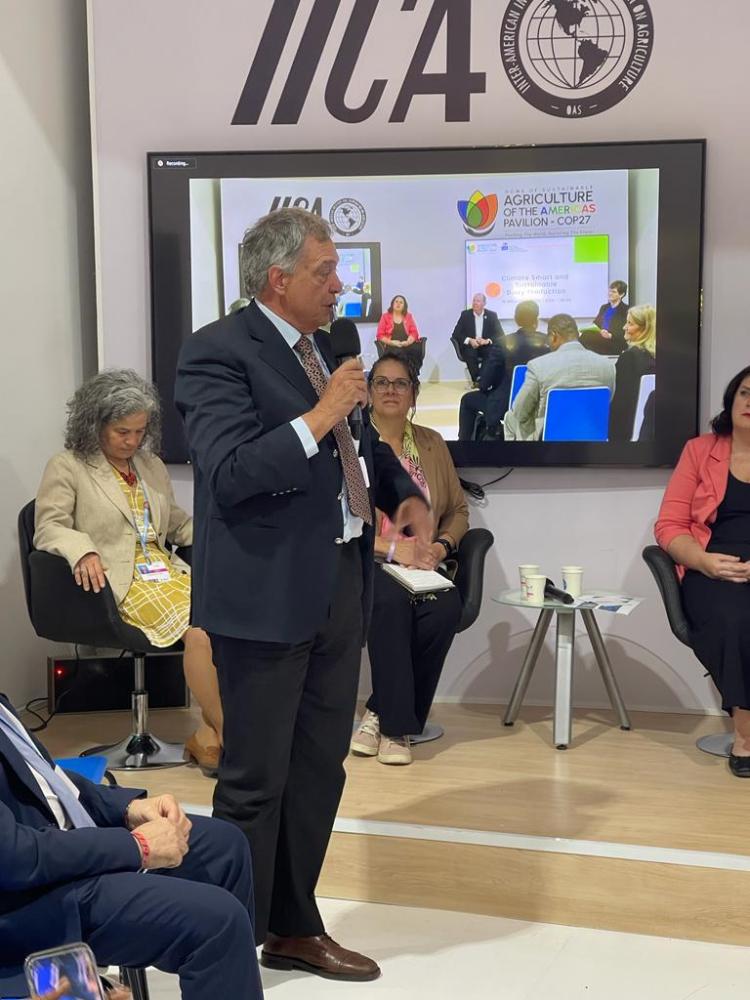The meeting, which was facilitated and attended by representatives from Food Forward Consortium and Food Action Alliance, among them, the latter’s Executive Director, Adam Gerstenmier, discussed ways to foster more concrete linkages between agrifood systems and climate action in the coming months.

Sharm El-Sheik, Egypt, 10 November 2022 (IICA) – Fernando Mattos, Minister of Livestock, Agriculture and Fisheries of Uruguay and Chair of the Southern Agricultural Council (CAS), and the Director General of the Inter-American Institute for Cooperation on Agriculture (IICA), Manuel Otero, met at COP27 in Egypt with the Minister of Climate Change and the Environment of the United Arab Emirates, Mariam Almheiri, for an information exchange session on the transformation of global agrifood systems in response to the climate crisis.
The gathering, which brought together representatives from more than 30 global organizations, was held at the Home of Sustainable Agriculture of the Americas pavilion, which IICA installed at COP27. The venue has become a popular meeting ground for government officials, civil society organizations, producer associations and private sector representatives linked to sustainable agricultural production.
The meeting, which was facilitated and attended by representatives from Food Forward Consortium and Food Action Alliance, among them, the latter’s Executive Director, Adam Gerstenmier, discussed ways to foster more concrete linkages between agrifood systems and climate action in the coming months.
This exchange of ideas and perspectives was the second event of this kind in recent months and is one of the actions that the Gulf nation is undertaking in preparing to host the UN Climate Change Conference in 2023 (COP28).

During the session, both Minister Mattos and Director General Otero expressed their views on the expected results of COP28, from an agricultural and food perspective.
“I am a minister, and I am a farmer. We have always practiced sustainable agriculture, because we live and produce in nature, and we respect nature. We inherited a culture of sustainability, which we strengthen day by day for the younger generations”, said Mattos.
Otero highlighted the significance of the meeting being held at the Home of Sustainable Agriculture of the Americas pavilion and noted that, “we cannot have the healthy food we require without healthy farmers. I must express my concern over the situation of farmers”.
The senior officials also proposed and discussed potential efforts, initiatives and coalitions in preparation for the Summit.

In addition to reporting on the efforts that IICA and its Member States are undertaking to promote and raise the profile of the agriculture sector at the COPs, Otero reiterated the importance of agriculture and agrifood systems as strategic pillars and key players in climate negotiations. He referred to their unique role in tackling climate change and their crucial importance for food and nutrition security, poverty reduction, sustainability and water conservation and management, among other areas.
The meeting participants also discussed the outlook for agrifood system transformation as well as the financial mechanisms and incentives that would be required to drive this transition. They also considered ways to unlock investment and capital for this task, based on the needs of cities, rural areas, countries and regions.
Participating in the meeting were representatives of the World Bank, the Bill & Melinda Gates Foundation, FAO, Green Climate Fund, UN, Global Dairy Platform, World Economic Forum, Bayer, USAID and IFAD.
More information:
Institutional Communication Division.
comunicacion.institucional@iica.int










